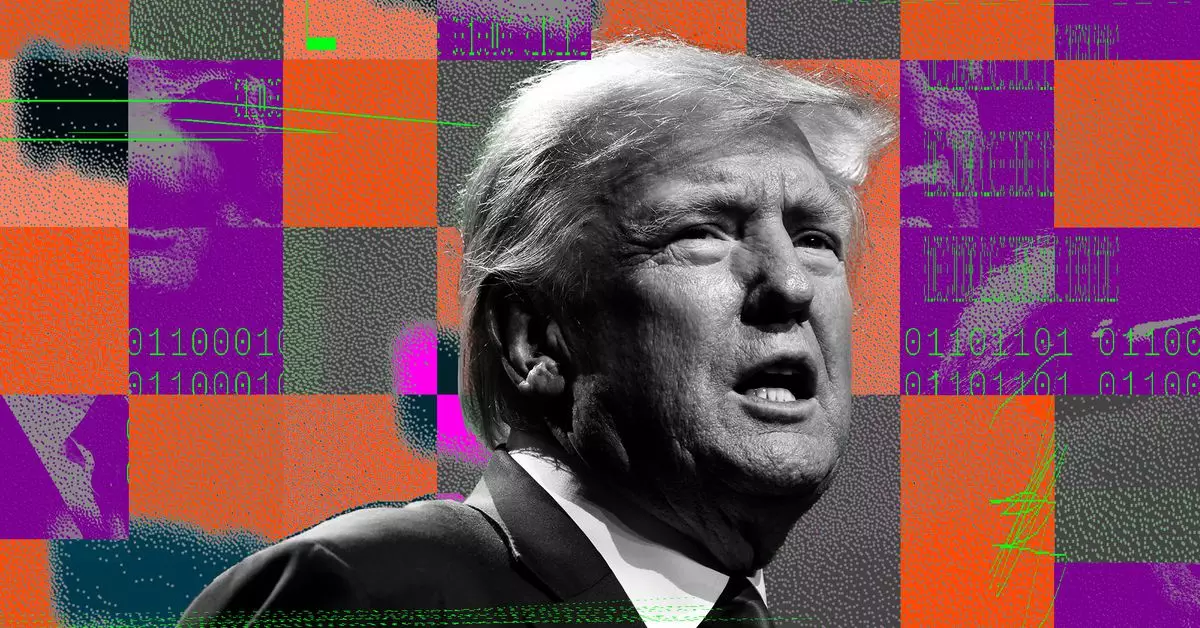In a striking development in the ongoing narrative of cybersecurity and electoral integrity, the U.S. Department of Justice (DOJ) has recently indicted three Iranian nationals accused of launching a sophisticated cyberattack on Donald Trump’s presidential campaign. This alarming incident highlights the persistent vulnerabilities within political campaigns, particularly in an age where digital information is both a weapon and a shield. The depth of the indictment sheds light on the methods employed by these hackers, laying bare the intricate web of deception they navigated to infiltrate sensitive political communications.
Methods of Intrusion: Spear Phishing and Social Engineering
According to the indictment released on Friday, the hackers, linked to Iran’s Islamic Revolutionary Guard Corps, utilized social engineering and spear phishing tactics to breach various campaign officials’ accounts. Spear phishing, a targeted attempt to steal sensitive information such as account credentials, is particularly alarming due to its effectiveness in manipulating human psychology. By masquerading as legitimate communications, the attackers seemed to exploit the vulnerabilities of individuals who might not have been adequately prepared for such sophisticated ruses. Not only did they access nonpublic campaign documents, but they were also responsible for leaking these documents to the media, demonstrating a blatant disregard for the privacy and integrity of the democratic process.
The DOJ’s indictment brings to light significant connections between the hackers and an Iranian internet service provider, Respina Networks. This association suggests that the hackers were granted “unrestricted” internet access outside of Iran, a crucial element that facilitated their operations. Furthermore, the use of commercial virtual private networks (VPNs) allowed the perpetrators to create a series of deceptive domains like “tinyurl.ink” and “mailer-daemon.online,” tools that aided their fraudulent activities. This highlights a profoundly troubling aspect of modern cybersecurity: the ease with which malicious actors can manipulate digital environments to cloak their identity.
The implications of this breach extend far beyond technical security concerns. Assistant Attorney General Matthew G. Olsen emphasized that such cyberattacks represent a direct assault on the integrity of democratic processes. In a time when misinformation and disinformation are already rampant, foreign actors leveraging cyber-enabled strategies to disrupt elections poses a critical threat to national security. This incident serves as a stark reminder for campaigns and government institutions about the necessity of bolstering cybersecurity measures and fostering awareness of potential threats.
In the wake of this incident, the U.S. Treasury Department has taken the proactive step of offering a reward of up to $10 million for information leading to the capture of the accused hackers. This move underscores the government’s recognition of the serious threat posed by foreign cyber intrusions. As political campaigns evolve in their use of technology, the imperative for rigorous cybersecurity protocols has never been clearer. The aforementioned indictment is not merely a legal document; it serves as a clarion call for greater vigilance and preparedness against the burgeoning realm of cyber threats facing democracies worldwide.

